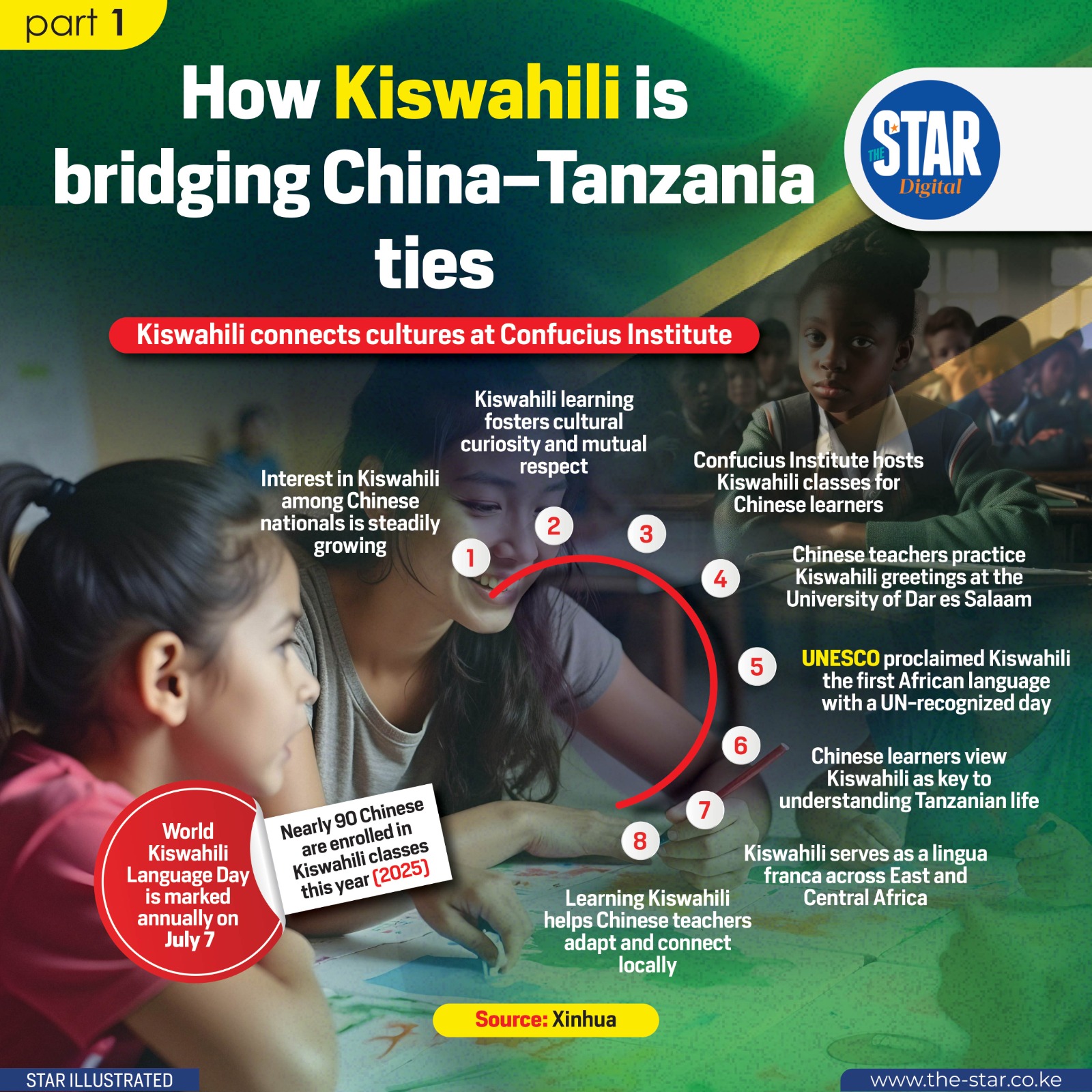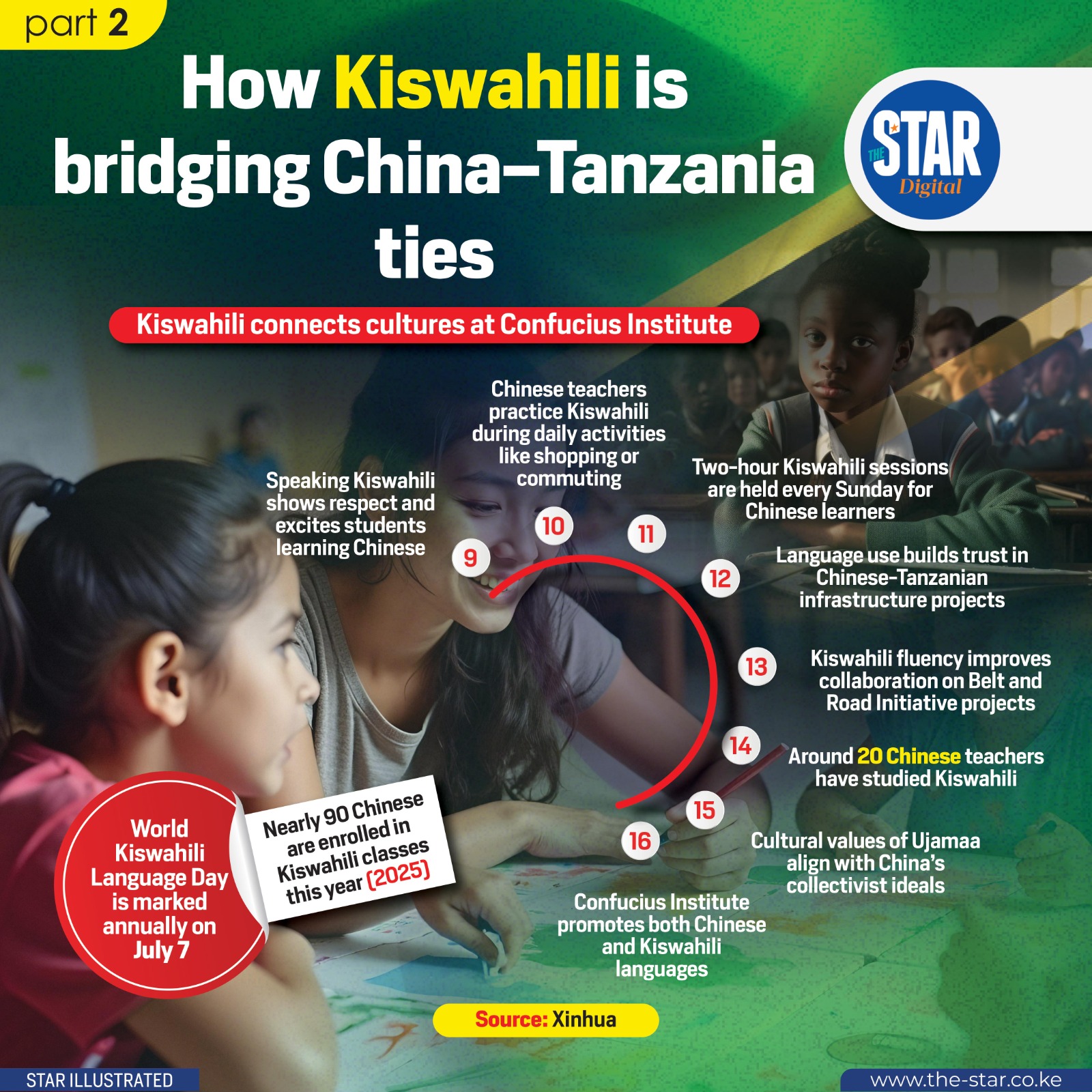

As the international community marked World Kiswahili Language Day on Monday, the spirit of this day came vividly alive at the Confucius Institute of Tanzania's largest university, where Chinese nationals were embracing Kiswahili not just as a language but as a gateway to understanding local life.
Kiswahili, also known as Swahili language, is one of Africa's most widely spoken languages, serving as a lingua franca across East and Central Africa.

The General Conference of the United Nations Educational, Scientific and Cultural Organization (UNESCO), at its 41st session held in Paris, France, in 2021, proclaimed July 7 of each year as World Kiswahili Language Day, making it the first African language to be recognized in such a manner by the UN.
Yang Xin, a Chinese language teacher at the Confucius Institute, said learning Kiswahili has been both a challenge and a necessity.
"At first, I couldn't understand anything," she recalled. "But thanks to the Confucius Institute, I started learning. It helps me adapt to life here and connect with people."











